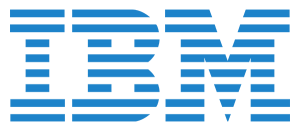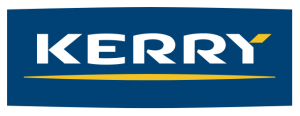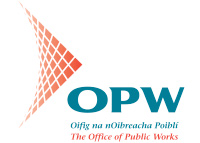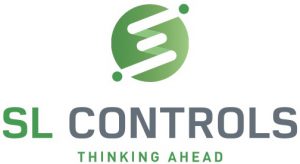Overview
 NEXT AVAILABLE COURSE: May 2025| PRICE: €1,550 per candidate
NEXT AVAILABLE COURSE: May 2025| PRICE: €1,550 per candidate
The purpose of this programme is to embed in learners, through repeated practice, a powerful logical thinking strategy to enable successful, meta-cognitive, fault finding and root cause analysis. The course will also facilitate learners to identify and evaluate the key contributary factors for effective communication within a larger team, horizontally across production shifts, and vertically to SME’s, supervisors and managers, when escalating open issues. Downtime can be reduced by systematically narrowing to the cause of the problem and implementing a binary fix. However, greater cost saving will result by addressing root cause, avoiding re-occurrence and implementing process improvements.
Who should attend the QQI Level 6 Problem Solving, Reliability & Collaboration training course:
This programme is essential for anyone involved in the maintenance process from entry level operators to engineers and team leads. For entry level and new hire operators and technicians the systematic problem solving, and collaboration skills will help them become effective team members and to troubleshoot basic maintenance issues. For more experienced maintenance technicians who are directly involved in diagnostic troubleshooting and repair this training will help develop and enhance these skills and enable them to collaborate more effectively with colleagues. It will also equip them with the skills to adapt their techniques to changing technologies and team structures. Management will develop skills to look at systematic troubleshooting from the point of view of organisational change and to focus on strategic problem solving and collaboration across departments.
Why Should I attend?
This course will prepare learners to become sought after lead techs who can use powerful tools to analyse production metrics in a data rich environment as part of a team and bring proposed solutions to production managers.
Learning Experience
Learning tools which will enable repeated, varied, and guided practice will prove to the learner that application of the process does yield concrete results. Sofware simulators will be made available to allow the learner to engage in further autonomous practice between classroom sessions.
.
Course Objectives
And the end of the course learners will be able to:
- Troubleshoot automated systems with a world class winning strategy.
- Write excellent problem statements, draw effective block diagrams, escalate and communicate effectively across the maintenance team.
- Describe using block diagrams the inter-dependence and relationships of the sub-systems that make up a system and how to utilise these diagrams to assist fault-finding and team communication.
- Apply reliability maintenance tools to improve Overall Equipment Effectiveness.
- Implement DMAIC projects collating and presenting relevant metrics.
- Lead groups in problem analysis and representation techniques.
- Become effective participants in lean and six-sigma projects.
Course Modules
(DMAIC) Define, Measure, Analyse ,Implement, Control – What You’ll Learn
- Problem solving compared to troubleshooting.
- Organisation culture: Productivity metrics vs. staff development. The challenges behind fostering a learning culture while facilitating the needs of different stakeholders. The personal characteristics needed for a successful troubleshooter and problem solver.
- Psychology of decision making: System One and System Two thinking. Fostering metacognition. Evaluate different approaches: Lateral v Vertical, stepping stone methods, gambling, testing, thinking.
- Introduction to DMAIC and 5S.
- Navigating and filtering different types of technical documentation.
- System representation models, e.g Block Diagrams
- Implement 5S and DMAIC in the classroom.
Problem Solving, Troubleshooting Tools and Data presentation – What You’ll Learn
- Binary Approach to Troubleshooting
- Reliability maintenance tools: 5 Whys and Root Cause Analysis.
- Brainstorming and Fishbone charts
- Benefit Vrs. Effort Grids
- Measuring Overall Equipment Effectiveness (OEE)
- Pareto Analysis
- Measuring Cycle time
Communication and Reporting Skills: What You’ll Learn
- Pull Communication (operator, other technician) and Push Communication (escalation) skills.
- How to write in Plain English, creating a troubleshooting folder to assist with key information and to develop a troubleshooting guide.
- Communication skills for different stakeholders: Shift Handover Reports; Running Team Brainstorming Sessions; Supervisor Update Reports, Authoring troubleshooting guides.
Teamwork Troubleshooting: What You’ll Learn
Utilising a simulated Factory environment learners will implement process improvement projects using the DMAIC approach
COURSE DELIVERY
- The course is delivered over 6 instructor led days. There are self directed hours to be completed before the course starts, between course days and before exams.
- Course days are scheduled over 3 weeks to enable sufficient time for self directed learning.
- Maximum group size of 10 to ensure individual attention and pace can be adjusted to learner needs
- Highly qualified and experienced trainers.
- Courseware includes quizzes and interactive learning materials and workbooks for practical exercises and revision
- Students will need a laptop or tablet to complete the course. Technotraining may be able to provide a laptop for the duration of the course, depending on availability
QQI Assessment
- Practical Examinations: 50% of overall mark
- Project: 50% of overall mark
QQI Accreditation and Progression
- 6N22482 QQI Level 6 Minor award in Problem Solving, Reliability & Collaboration
- This Award is one component required for the Advanced Certificate in Industrial Automation Technology 6M25693
Entry Requirements
No previous formal qualification is required but learners should have relevant work or life experience to have reached the standards of knowledge, skill and competence associated with Level 5 of the National Framework of Qualifications.
Though no specific qualification is required entrants should have some prior technical or mechanical experience or knowledge. Ideally they would have had exposure to electrically controlled equipment and/or a manufacturing environment.
Competence in written and spoken English is essential. International students whose first language is not English are required to have an appropriate score in an approved examination in English language. We accept an IELTS test score of 6. We also accept IELTS equivalents such as TOELF, Cambridge exams and Duolingo English Test.
Learners should have good computer literacy skills. This includes use of email, microsoft word, internet searches. Self-directed learning also requires learners to have good self motivation and time management skills. Again, further details and tips can be found in the Learner Handbook. You will be required to have a laptop computer.
If you would like to assess your entry level knowledge, relative to course content, please contact us and we can set you up with a free trial on our e-learning platform.
RPL is a process whereby a learner with prior qualifications and/or relevant work experience may apply to exemptions from attending the full course. Note learners will still need to pass the assessments. You will be asked to submit an application form for RPL and will be required to provide proof of qualification. RPL requirements are different for different courses and awards.
When we receive your booking request we will call you to go through an enrolment checklist with you to ensure that you meet all entry requirements for the course you have selected.
If you have any questions before making a booking request, we’d love to hear from you.
This course is funded by the Engineering Skillnet. Please contact Fiona Fennell [email protected] for further details.








































